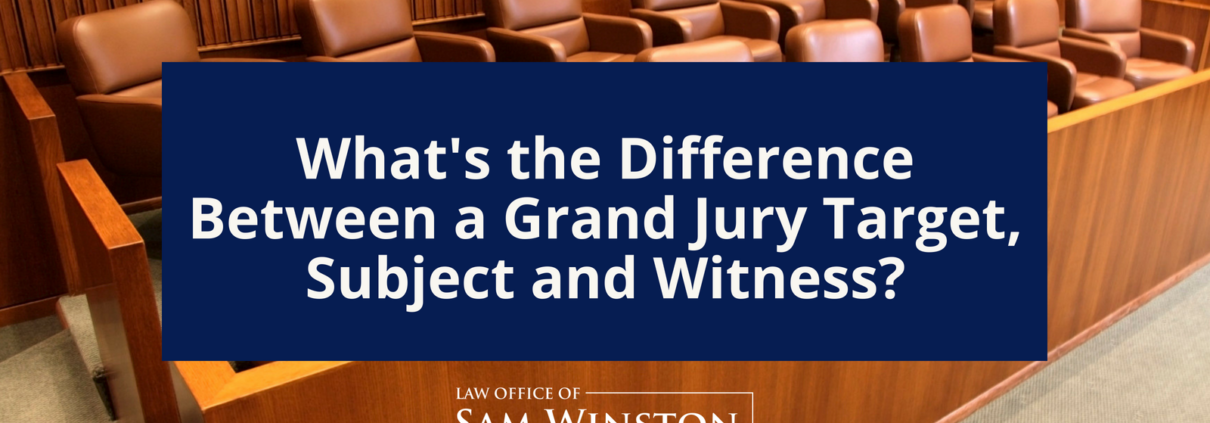If you’ve received a letter saying that you are either the target or a subject of a grand jury investigation, the next steps you take will be critical to your freedom and reputation. The first thing you’ll want to do is consult with a grand jury lawyer to hire before talking to anyone else.
Before talking about what comes after that, there are first a few things you should know about the grand jury in Louisiana.
Grand juries, which consist of 16-23 people, are convened to review evidence presented by prosecutors to determine whether formal charges should be brought against a person. The burden of proof to bring charges against someone (probable cause) is much lower than the burden of proof to convict and imprison someone, which is proof beyond a reasonable doubt.
Grand juries are also different than the regular juries because they do not review evidence in open court like a regular jury in a trial. Instead the prosecutor presents evidence to them directly in a mostly secret proceeding.
Here are some additional facts about the grand jury process:
- Defense lawyers and judges are not allowed in the grand jury room.
- Hearsay evidence is allowed in grand jury testimony, unlike in open court.
- Grand juries do not have to be in total agreement to return an indictment in a case.
- Grand jurors don’t have to swear they have no opinions about whatever they are investigating
There is a lot of terminology and legalese surrounding grand jury proceedings. Here is a breakdown of these words and what they mean.
What is a grand jury target?
If someone is the target of a grand jury, this means the grand jury is looking at substantial evidence that links him or her to a crime:
- If someone is designated as a target, the distinction serves as a “clear warning” to criminal exposure, according to the U.S. Department of Justice.
- A grand jury target can be subpoenaed to testify at a grand jury hearing, but it is an uncommon for grand juries to do so.
- An experienced criminal defense attorney will likely tell a grand jury target to invoke his or her Fifth Amendment right against self-incrimination.
What is a grand jury subject?
The subject of a grand jury is someone whose actions are part of the grand jury’s overall investigation:
- Subjects of grand jury investigations are sometimes subpoenaed to testify before the grand jury. If this happens, anything the subject says in the grand jury proceedings can be used against him or her in grand jury or other criminal proceedings.
- If someone is the subject of a grand jury investigation, he or she could be elevated to “target” status as the grand jury proceedings progress.
- It is crucial to hire an experienced grand jury attorney even if someone is only the subject of a grand jury investigation.
What is a grand jury witness?
A grand jury witness is someone who could have vital information for the grand jury:
- Grand jury witnesses are not suspected of crimes related to the scope of the investigation.
- They are people who have information that will aid the grand jury.
- Although grand jury witnesses are not criminally exposed, if they are subpoenaed to testify in front of a grand jury, they should consult with an attorney before doing so.
- The attorney cannot be present when the witness testifies before the grand jury, but the attorney can be posted outside, and the witness can step out to ask questions before answering questions posed by the grand jury.
Although the three terms have different meanings, they all have one thing in common: targets, witnesses and subjects of grand jury investigations should consult with an experienced attorney before giving any statements to a grand jury or a prosecutor who is presenting to the grand jury.
Sam Winston has experience in counseling people who have been subpoenaed to testify.
If you or someone you love has been subpoenaed in connection with a grand jury proceeding, contact the law office of Sam Winston today.


